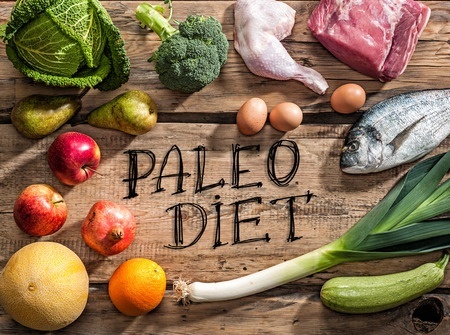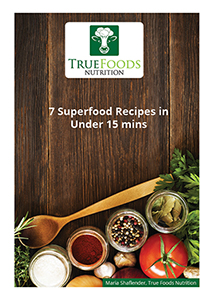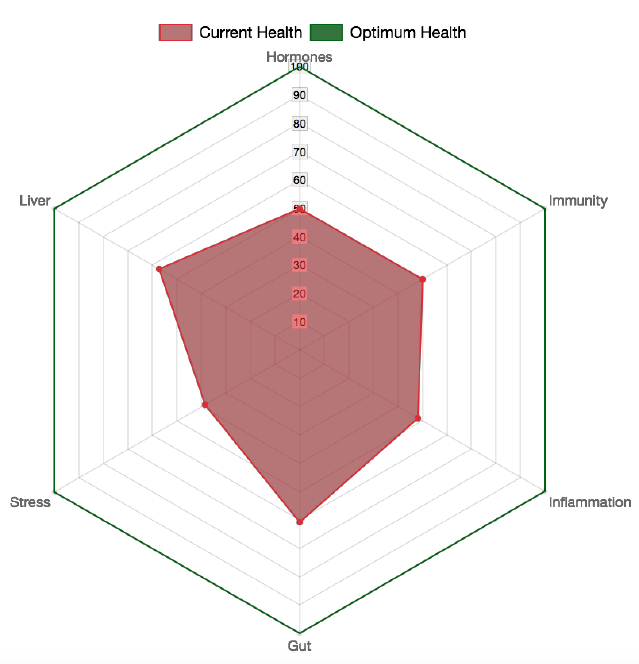25 Budget Tips for Healthy Living
When switching to a wholefoods, traditional foods, Paleo foods and generally a ‘True Foods’ lifestyle, budgetary concerns definitely come up as many people view this way of eating as expensive, indulgent, exclusive, etc.
Whilst I truly believe that a commitment to the right way of eating is paramount and definitely worth an investment that I prioritise above many other expenses, I appreciate that budgets still need to be met. So I’ve been doing a lot of reading on what experts in this way of eating recommend when it comes to planning meals on a budget.
Budget Tips for Paleo lifestyle
This list is a compilation of my own proven and tested ways of saving as well as the top tips from my favourite bloggers, nutritionists and naturopaths (sources listed at the end). I hope that you will find tips that work for you here and would love to hear any additional tips from you in the comments!
To start:
Firstly and most importantly: prioritise food and your family’s nutrition. So often I hear people say ‘yes, organic is nice, but it’s just too expensive’. Sorry but I disagree (with closer friends, my rather blunt response is ‘staying at the hospital for weeks with a disease that no-one knows how to treat is more expensive in the long term!’).
Organic and high quality grass fed food is becoming less expensive as demand grows, it’s simple economics. Also, it’s better to save money on less important things (list below) and focus on building health. In the long term, you will save a lot of $$ on doctor’s bills and eventually hospital bills. It’s worth it!
1. Buy these items in cheap stores like Aldi or Costco as they are just not that important! Toilet paper, kitchen paper, other less important household items. Buy these in bulk if you have room
2. Don’t buy at all: soft drinks, cereal boxes, packets of biscuits and chips, protein bars, packaged foods, ‘convenience packs’ of little yogurts, little cheeses, little packets of everything, pre-prepared supermarket meals, cakes, etc. This will save a lot of $$$
3. Ditch the chemical laden household cleaners and use plain baking soda, lemon, vinegar- you know the things they cleaned with before Ajax was invented!
4. Buy a lot less make up and skin care and just a few essential items that are organic. When you eat just wholefoods, your skin clears and you won’t need ½ the make up shelf. Ditch the commercial brands that are full of lead, parabens and fake fragrances. All high end cosmetics are full of harmful ingredients and they will NOT get rid of wrinkles! (you already knew that:)
5. Drive less to save $$ on petrol. Walk more, especially on weekends.
6. Re-evaluate designer clothing. I think this is one area where people spend a lot of money- I regularly pick up great basics in Kmart and Target. Sure you need a couple of nice pieces, but honestly- it’s just clothes!!!
7. Cut out the extras– determine if you’re buying anything that is unnecessary – $4 coffees, bottled water, fancy ingredients you use once for an extravagant recipe, protein powders, etc. – and cut it out. Go through your food spending and see if you can identify unnecessary splurges that are putting you over budget.
8. Cut out alcohol (or at least significantly reduce it to maybe weekends only). It’s astounding how much we spend on this stuff! I really think this is literally pouring money down the toilet if you are on a budget.
9. Health food store supplements– many people self medicate with a large number of herbs, vitamins and other supplements. Firstly, please remember that these should be treated just like medicines! They are potent and you need to know why you are taking them. Your $$ would be better spent consulting a naturopath/nutritionist and actually getting the supplements that you NEED rather than buying the latest one that is advertised in the health food shop.
Now that you’ve saved a lot of $$ already, here are food specific strategies:
10. Make 2-3 changes per week instead of going out and spending $500 on all new pantry items. Slowly convert products rather than all at once
11. Avoid spending money on ‘superfoods’! Whilst I love raw cacao, people go overboard with these things as if they are the latest panacea for all the ills of the world. Goji berries, camu camu, maca powder, acai, chia seeds, and the good old wheat grass etc, etc, etc! The vast majority of people just need to eat real food and all the superfoods you need can be found at the farmer’s markets and the butcher shop/fish shop.
12. Use cheap cuts of meat, but prioritise grass fed and finished. If you’ve been following my blogs – you know I always use organ meats like liver, tongue, marrow. They are the most nutritious and the cheapest. Also, cheaper muscle meats that cook for longer are delicious. These deliver an enormous nutritional benefit that will make a significant difference in your overall health. Save the lamb cutlets for special occasions. Read more about getting your meat right in my blog here.
13. If you can’t afford to buy everything organic or pesticide free, be sure to prioritise organic meats and fats. These are higher in the food chain and much more impactful on health. If you can’t afford grass-fed organic meat, at the very least look for options that are guaranteed to be hormone and antibiotic free
14. Join a local organic co-op. These are becoming more common, just check your local area. If you don’t have one around, start a co-op with some like-minded friends
15. Find a local farmers market and shop there regularly to support the people who actually grow your food
16. Prioritise which foods to buy organic and which are less important. If you haven’t heard about the ‘Dirty Dozen’ and the ‘Clean 15’ see: www.ewg.com for a good list
17. Plan your meals for the week and write a shopping list-this is critical. You will not waste food this way, which already saves a lot. Set aside some time each week just for cooking.
18. Buy ingredients, not products: the more you cook from scratch, the more you will save- make your own saurekraut (or come to TFN workshops to learn how!) instead of paying $17 for a small jar. Make your own activated nuts/muesli rather than paying $25 at the health food shop.
19. Grow your own vegies or herbs in small pots even if there’s not much room
20. Buy in bulk, especially dry goods like nuts, dry coconut, flours, etc and share with a friend
21. Buy in season. Avoid the ‘air mile’ foods- US cherries in July, Hawaian pawpaw in August, etc. Stick with local, seasonal foods
22. Share food purchasing and cooking: for example, to save money on grass-fed meat, try a cow share. A client recently told me how her and a few other friends share meal preparation so everyone brings a dish and between a few friends that’s all the cooking done for the week!
23. Cook in bulk– an oldie but a goodie. Buy a second freezer if yours is small and do a big ‘cook off’ once a week/fortnight and freeze in individual portions.
24. Go to the fish market and freeze some extra fish. Buy only wild fish, not farmed (all salmon, tuna and trout are farmed).
25. And finally, have a think about fasting or intermittent fasting – this will cut out 2-3 meals from your week. Please note fasting is not for everyone and if you have issues managing your blood sugar or adrenal problems it is best to first see a professional. Feel free to book in a FREE 15 min phone consult to find out if fasting can be of benefit for you.
Extra Sources: www.chriskresser.com, www.holisticsquid.com, www.marksdailyapple.com











Hi Mary,
Very good point about the slave labour cheap clothes! I guess it’s like buying cheap mass produced food too. I think the clothes swap idea is great, my friends and I actually used to do that years ago, I think something to be resurrected! Especially for kids clothes for sure. Thanks for your comment!
This is the first article I’ve read on your blog and totally agree with a lot of the points. Also good to hear you de-bunking the myth of superfoods (I am guilty of buying into trends) and your view on how to get the best out of supplements from a nutritionist or naturopath.
One thing I would disagree with (and completely understand it is out of the remit of your blog) is buying cheap clothes from Kmart/Target etc. Given what we know about sweatshop labour, shopping in those places is the equivalent (I believe) to supporting global poverty. Clothes are expensive, and I appreciate not everyone can afford to pay more, but second hand clothing, op shops, passing onto friends, buying fewer clothes and looking after them would all reduce your budget. Yes, the organic movement is about better health for the individual but it is also about better health for the planet and those who produce our food and I would hope we can extend the same care to those who produce our clothing.
Thank you for sharing your tips and look forward to reading more.